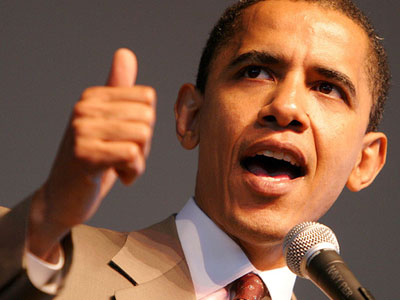
The problem with the president's health care/mail analogy: The Postal Service founders because it has no bottom line.
When President Obama told the people attending a town hall meeting on health care that “UPS and FedEx are doing just fine, right? . . . It’s the post office that’s always having problems,” he was right on the facts, but drew the wrong conclusion from them.
As his whirlwind schedule of Sunday talk show appearances indicates, he still doesn’t get it.
Obama was trying to make the point that private health insurance companies have nothing to fear if his health care reform plan forces them to compete with a publicly financed insurance “option” patterned on Medicare. But he failed to recognize that the successes of United Parcel Service and Federal Express—or the Postal Service’s failures—have little to do with the competition between them.
UPS and FedEx are doing fine because they are privately owned. Their survival and success depend on their ability to provide service at prices customers are willing to pay and that cover the costs of the global network of people and equipment necessary to pick up and deliver packages when promised. Motivated by the pursuit of profits for shareholders, the managers and employees of the two companies have powerful incentives to treat their customers well while keeping costs down.
The U.S. Postal Service is not doing “just fine” because it is publicly owned, which means it has no real owners. As a result, the Postal Service has no bottom line to attend to and no shareholders to hold it accountable for failure to operate cost-effectively. Despite having an exclusive monopoly on first-class and bulk mail, the post office chronically loses money—about $7 billion this year, with another $7 billion anticipated next year.
But why should its managers and employees worry? They know they can rely on their operating losses being covered by a combination of congressional subsidies (financed by taxpayers) and rate increases.
Generous salaries for Postal Service employees, restrictive work rules negotiated by the labor unions that represent them, the continued operation of thousands of obsolete, small-town post offices and failure to adapt to a world in which people communicate by e-mail rather than by first-class mail and pay their bills online all help explain why the Postal Service does not—and possibly cannot—operate profitably.
If the U.S. Postal Service were privately owned, it would have gone out of business long ago.
Had the president grasped more fully the lesson he was trying to teach his town-hall audience, he would have said that if a public insurance option is included in a health-care reform package, it will operate more like the U.S. Postal Service than FedEx or UPS.
Supporters of publicly financed health insurance contend that its administrative costs would be lower than those of private insurers, in part because a public plan would “not have to make a profit,” as if “profit” is a cost of doing business rather than a reward to owners who provide a desirable product or service at an attractive price.
The U.S. Postal Service’s problems (not unlike the problems of Medicare and Medicaid) should provide clear warning that the costs of any government health insurance program will balloon, precisely because the government insurance program wouldn’t have to make a profit. No profit motive means no incentive to innovate, streamline and provide a quality product at a competitive price.
William F. Shughart II is a Senior Fellow at The Independent Institute, Oakland, CA. The original version of this article was edited for length.

